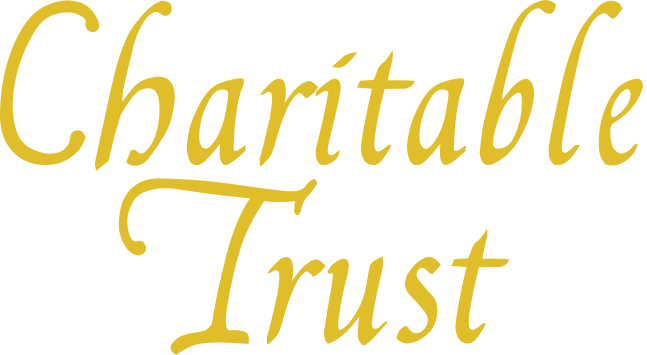Charitable trusts and institutions -Amendment in Section 12AA/ 80G
The Union Budget and Finance Bill 2020 has proposed major changes for charitable trusts and institutions. Under the new tax regime, she proposed to amend Section 10(23C), Section 11, Section12A, Section12AA, Section 80G and proposed to insert a new Section 12AB. All these amendments are proposed to be made w.e.f. June 01, 2020. Here is a simple snapshot of the key changes and what one needs to do.
Re-validation of existing registrations
All the existing charitable and religious institutions already registered under Section 12A, Section 12AA, Section 10(23C) and Section 80G will be required to re-apply to the income tax authorities to revalidate their existing registrations.
The process will be online and the new online form will particularly focus on whether the charitable activities of the trust or institution are genuine.
Once the online forms are ready there will be a window of three months within which application must be submitted.
After processing your application, your trust or institution’s registration under section 12AA and 80G may be revalidated by income tax for a period of five years.
Application for renewal after five years must be made at least six months prior to the expiry of the five years validity period.
New organizations
Newly established trusts and institutions applying to income tax for registration for the very first time will be given provisional registration for three years. Once granted, the provisional registration shall be valid for three years from the Assessment Year from which the registration is sought.
Thereafter, application for renewal or rather registration (instead of provisional registration) can to be submitted at least six months prior to the expiry of validity period of the provisional registration and registration so granted shall be valid for five years.
Additional new compliance u/s 80G
Every charitable trust or institution registered u/s 80G shall be required to submit a statement of donations received in such form & manner as may be prescribed & the benefit of 80G shall be available to donors on the basis of information relating to donation furnished by the corresponding charitable trust or institution.
Also, many NGOs/Trust /Institutes have 12A registrations going back several decades. Once registered, one did not have to renew it. Registration under 12A or 12AA meant, income of the trust or institution was exempt from income tax subject to various compliance under sections 2(15), 11, 12 and 13 etc., of the Income tax Act 1961.
Remember when registration under FCRA 1976 and later even FCRA 2010 renewal was not required. However, Foreign Contribution Regulation Rules 2015 brought in the system of five years validity and renewal.
Amendments brought in by Finance Bill, 2020 will bring additional burden of compliances for Charitable/religious trusts institution etc. but it will definitely lead to greater and transparent monitoring of activities of charitable trusts. The aforesaid amendments seem to be in the way to make the processes more transparent and uncorrupted by use of digital means.
The Union Budget and Finance Bill 2020 has proposed major changes for charitable trusts and institutions. Under the new tax regime, she proposed to amend Section 10(23C), Section 11, Section12A, Section12AA, Section 80G and proposed to insert a new Section 12AB. All these amendments are proposed to be made w.e.f. June 01, 2020. Here is a simple snapshot of the key changes and what one needs to do.
Re-validation of existing registrations
All the existing charitable and religious institutions already registered under Section 12A, Section 12AA, Section 10(23C) and Section 80G will be required to re-apply to the income tax authorities to revalidate their existing registrations.
The process will be online and the new online form will particularly focus on whether the charitable activities of the trust or institution are genuine.
Once the online forms are ready there will be a window of three months within which application must be submitted.
After processing your application, your trust or institution’s registration under section 12AA and 80G may be revalidated by income tax for a period of five years.
Application for renewal after five years must be made at least six months prior to the expiry of the five years validity period.
New organizations
Newly established trusts and institutions applying to income tax for registration for the very first time will be given provisional registration for three years. Once granted, the provisional registration shall be valid for three years from the Assessment Year from which the registration is sought.
Thereafter, application for renewal or rather registration (instead of provisional registration) can to be submitted at least six months prior to the expiry of validity period of the provisional registration and registration so granted shall be valid for five years.
Additional new compliance u/s 80G
Every charitable trust or institution registered u/s 80G shall be required to submit a statement of donations received in such form & manner as may be prescribed & the benefit of 80G shall be available to donors on the basis of information relating to donation furnished by the corresponding charitable trust or institution.
Also, many NGOs/Trust /Institutes have 12A registrations going back several decades. Once registered, one did not have to renew it. Registration under 12A or 12AA meant, income of the trust or institution was exempt from income tax subject to various compliance under sections 2(15), 11, 12 and 13 etc., of the Income tax Act 1961.
Remember when registration under FCRA 1976 and later even FCRA 2010 renewal was not required. However, Foreign Contribution Regulation Rules 2015 brought in the system of five years validity and renewal.
Amendments brought in by Finance Bill, 2020 will bring additional burden of compliances for Charitable/religious trusts institution etc. but it will definitely lead to greater and transparent monitoring of activities of charitable trusts. The aforesaid amendments seem to be in the way to make the processes more transparent and uncorrupted by use of digital means.


